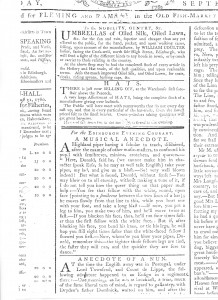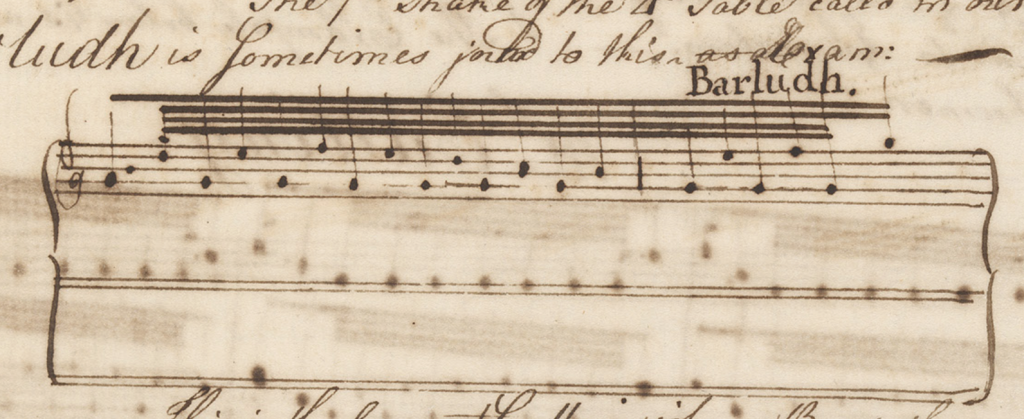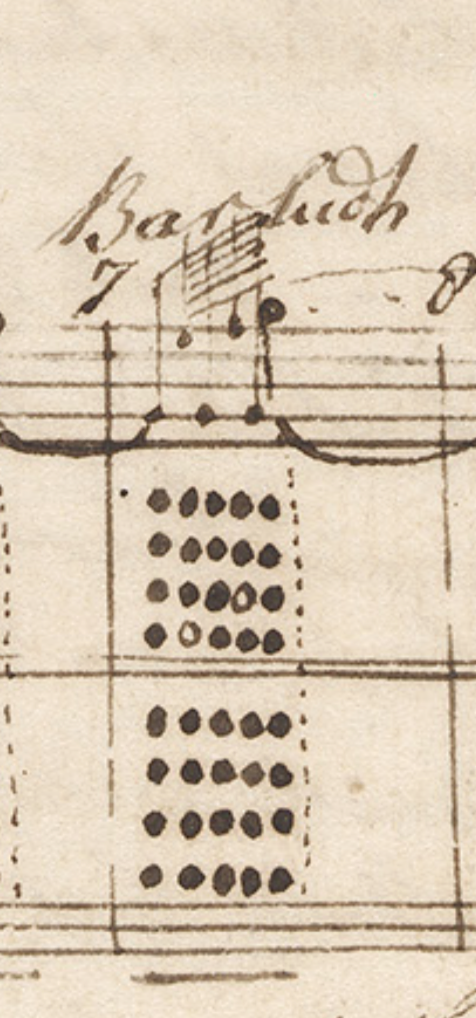The pictured clipping from the Edinburgh Evening Courant from September 1780 appears at first to just be a satirical dig at the stock image of a highlander. Which indeed it is, and typically for the period is very slanted. But, at the same time it does raise a question: Normally when it comes to the context of pipers starting to use written music there is a gap from Joseph MacDonald (whose work in any case would not have been generally known) to Donald MacDonald and his productions for the Highland Society of Scotland.
However, this clipping might also indicate that somewhat earlier, pipers were starting to take an interest in written music. The disparaging aspects of the article could go some way to explain Donald MacDonald’s own view of the ‘untutored’ teaching of the older masters. It is a view that continued down to the 1860’s when John Ban MacKenzie retired and the Breadalbane Factor was trying to find a replacement. MacKenzie was approached to see if there was anyone he could recommend from his new home in Ross. He replied that although there were a number of local pipers ‘none of them were learned’, i.e., had been taught through the use of written music.



